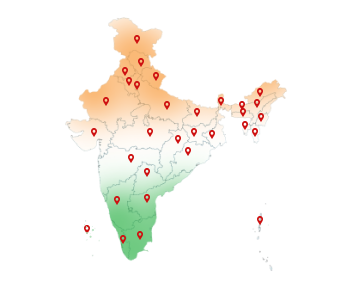21-Apr-2023
Role of a PKI in Cyber Security? Know About PKI Signing
As the digital world grows, so does the threat of cyber attacks, making cyber security a crucial aspect of businesses. One important security measure is the Public Key Infrastructure (PKI) system. This system uses public and private keys to encrypt data and decrypt data, ensuring secure communication over the Internet.
Purpose of a Public Key Infrastructure (PKI)?
The main purpose of a PKI is to provide secure and authenticated communication over the Internet. This is achieved by using digital certificates, which are issued by a certificate authority.
These certificates contain information about the identity of the user and their public key, ensuring that the parties involved in a transaction are who they claim to be.
PKI provides encryption, integrity, non repudiation, and key management, ensuring that data is protected from unauthorized access and cyber attacks.
Components of Public Key Infrastructure?
The PKI system consists of three main components: a certificate authority, a registration authority, and a certificate store.
Certificate Authority
A Capricorn certificate authority (CA) issues digital certificates to users and is a trusted third-party organization. These certificates contain the user's public key and information about their identity. This ensures that the user is who they claim to be, and their public key is associated with their identity.
Registration Authority
A registration authority (RA) is responsible for verifying the identity of the user before requesting a certificate from the CA. The RA acts as an intermediary between the user and the CA, ensuring that the user's identity is verified before requesting a certificate.
Certificate Store
The certificate store is where all the digital certificates issued by the CA are stored. These certificates can be accessed by authorized parties to ensure that the parties involved in a transaction are who they claim to be.
How Does PKI Signing Work?
PKI signing is the process of using digital signatures to ensure the authenticity of data. When a user signs a document using their private key, a digital signature is generated. This signature is unique to the user and the data being signed.
The recipient can verify the authenticity of the data by using the user's public key to verify the digital signature. If the digital signature is valid, it ensures that the data has not been tampered with or altered during transmission.
Why PKI Signing is Essential for Business Security?
PKI signing is essential for business security as it provides a secure and authenticated method of communication over the Internet. In today's digital age, businesses rely heavily on online transactions and communications, and PKI signing ensures that sensitive data is protected from unauthorized access and cyber attacks.
Digital signatures generated through PKI signing provide non-repudiation, ensuring that the signer cannot deny digitally signing the document. This is crucial in legal and financial transactions, where the authenticity of the data is of utmost importance.
PKI signing also provides data integrity by preventing any changes to the document after it has been signed, and authentication by ensuring that the signer is who they claim to be.
Implementing a PKI system with PKI signing can help businesses ensure the security of their online transactions and communications, protecting sensitive data from cyber threats. Furthermore, Capricorn CA's pki.network is designed to manage the flow of information and ensure its security through the use of cryptography.
The digital certificate provided by this network includes details about the user's identity, as well as a public key that can be used to access the information. With the assistance of the public key, anyone can authenticate the user. The private key, which can only be accessed with the provided password, is controlled by the owner of the digital certificate.
Conclusion
PKI is a crucial component of cyber security, providing secure and authenticated communication over the internet. It ensures that the parties involved in a transaction are who they claim to be and that the data is protected from unauthorized access and cyber-attacks.
The PKI system consists of three main components: a certificate authority, a registration authority, and a certificate store. PKI signing is the process of using digital signatures to ensure the authenticity of data. By implementing a PKI system, businesses can ensure that their sensitive data is protected and secure.


